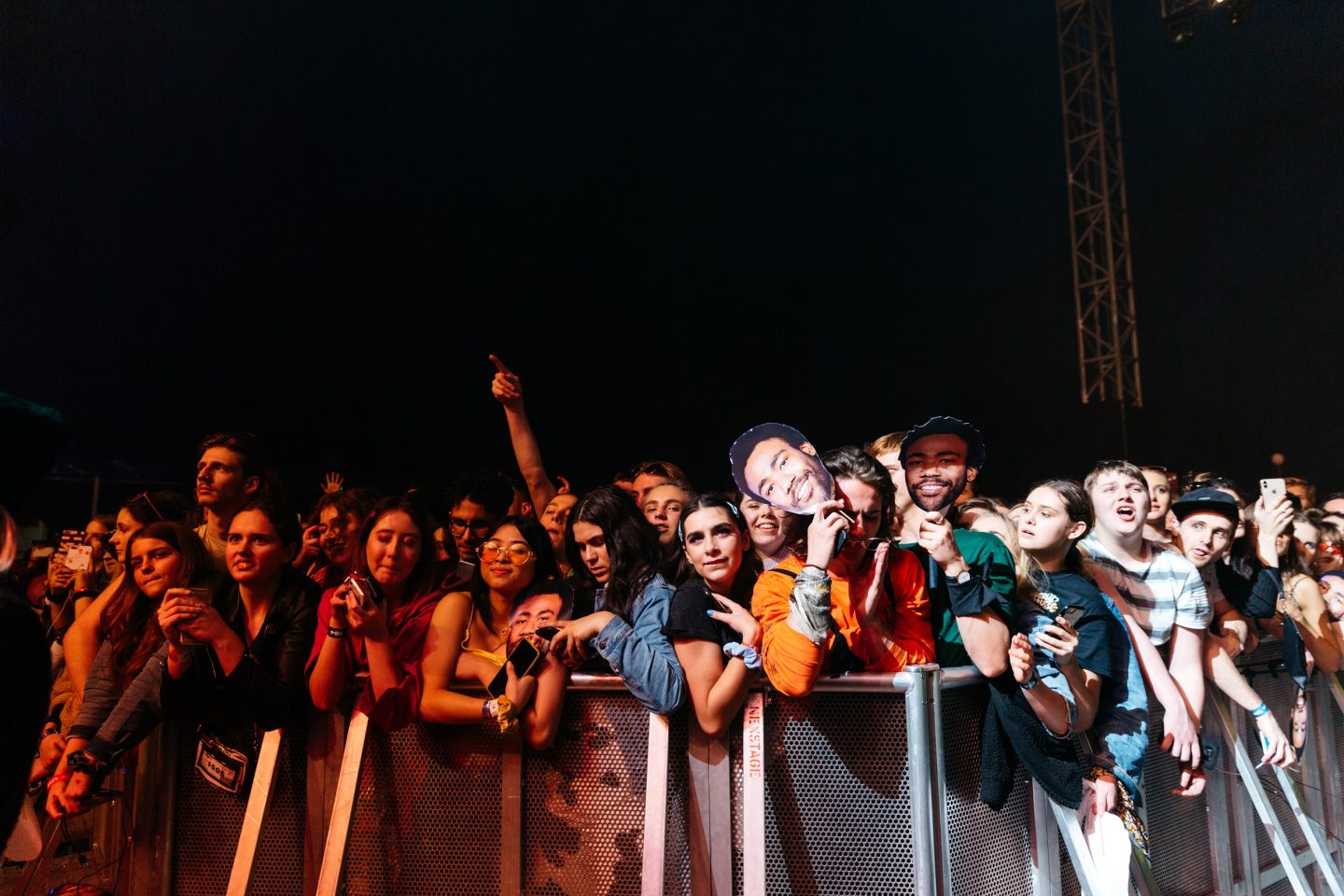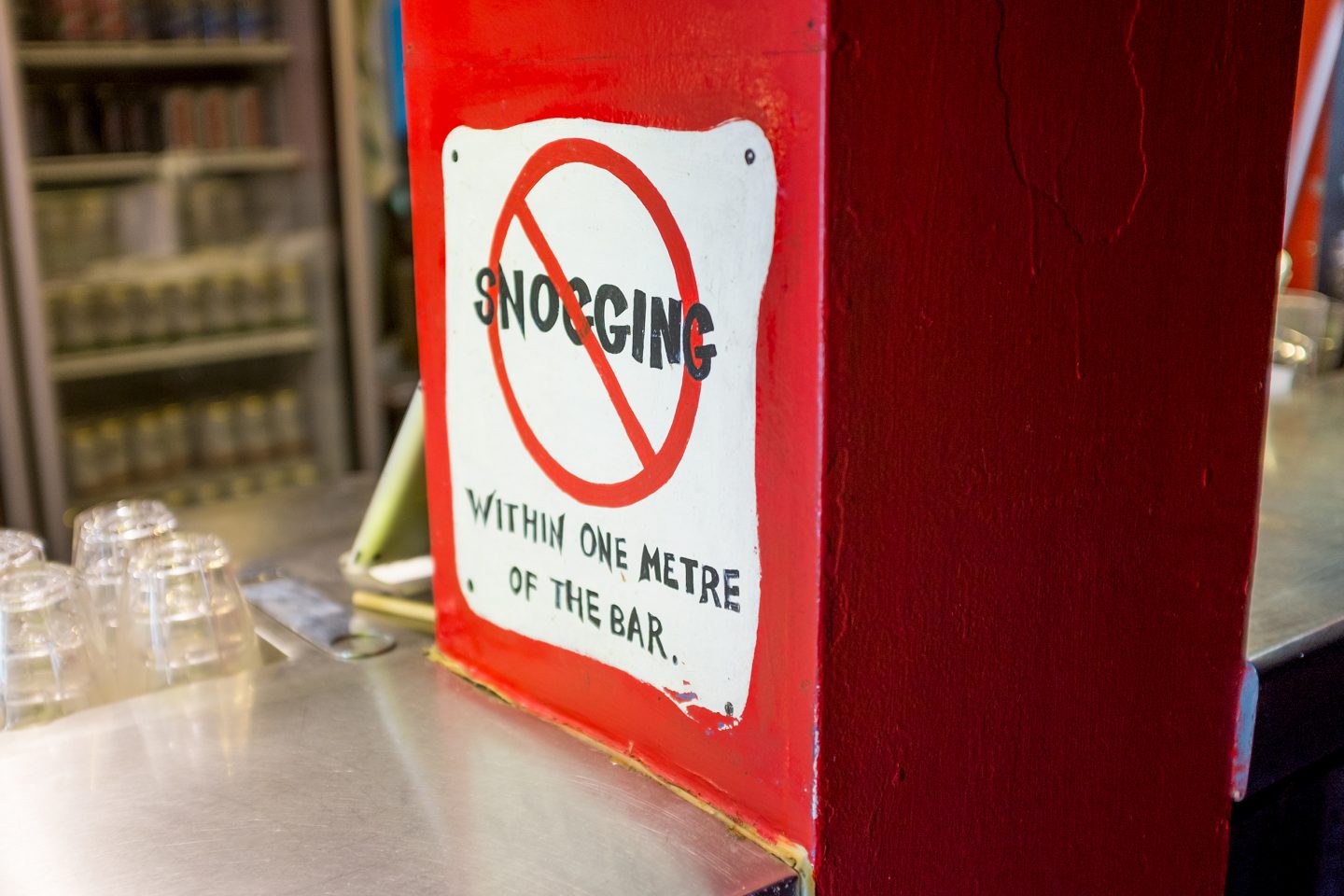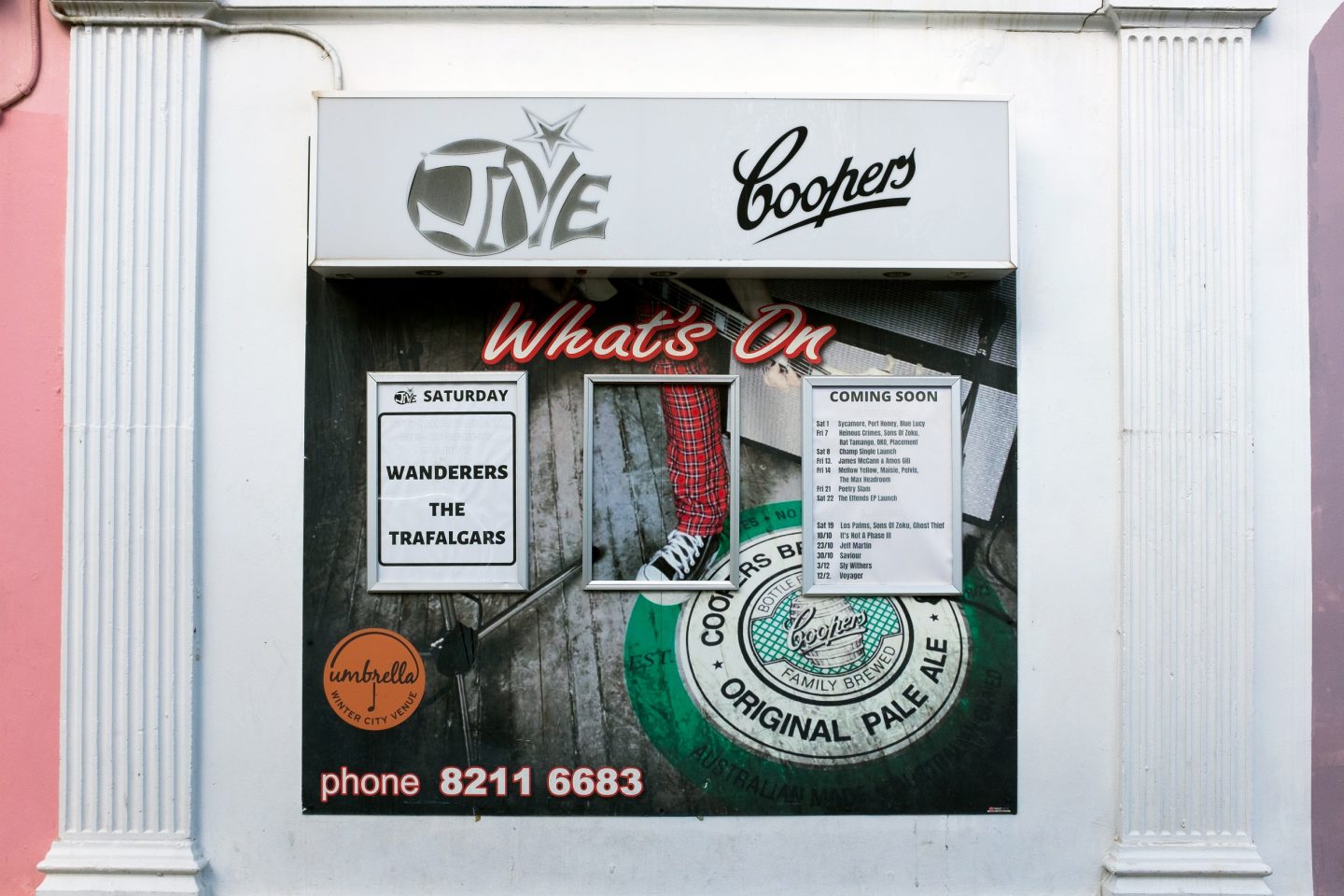“On 14 March we shut,” Jive owner Tam Boakes tells The Adelaide Review. “It was all tours, and they cancelled before it was all actually mandated by government. Because of the fear, even local artists were like, ‘we don’t know if we feel comfortable’. And I didn’t want to be ‘that’ venue – imagine if everyone went to Jive and got COVID!”
Four months and one week later, Boakes finally reopened her Hindley Street doors on 25 July for a show that, coincidentally, marked the venue’s 17th anniversary. “It was really, really good,” Boakes says. “People didn’t know if it would happen, and maybe not that soon.”
But it also bittersweet, as the joy shared by Boakes, the artists and punters was tempered by capacity limits and social distancing measures that served as a reminder that 2020 remains the most surreal, and toughest year in the venue’s history.
“It was such a good vibe, it was a little hard to contain people’s excitement as the night went on,” she says. “You just want to dance. Initially everyone’s standing still, but by the end everyone’s grooving a little, and we’re like, ‘guys, you can’t do that!’.”
Jive hasn’t been alone in navigating the somewhat counter-intuitive challenge of operating a venue while dancing and drinking continues to be regarded as a public health risk (“I may have grey hair, my kids call me a boomer, but I know what happens in a nightclub,” Chief Public Health Officer Professor Nicola Spurrier said in July). For venue operators, ensuring punters comply with social distancing measures means unlearning almost everything that usually goes into making sure people have a nice time.
“The bands also want to engage, it’s hard for them to stop mid-gig and say ‘can you not have fun?'”
“It’s been a bit weird trying to stop people from dancing – that’s their natural inclination, but we’ve been putting a lot of effort into that,” explains Craig Lock of Lion Arts Factory and 5/4 Entertainment. “Obviously, some venues have been fined and we didn’t want to have that happen to us – we put a bunch of furniture around, tried to have a mixture of seating and standing, and put in some fence panels to sort of break up the room a bit. You can’t stop everyone but you do your best effort, and that’s what we were doing.”
“The bands also want to engage, it’s hard for them to stop mid-gig and say, ‘can you not have fun?’” Boakes says. “It’s not what they aim to do, really. But by the same token everyone’s like, ‘we’ll take it’. If we get to go out and see music, we’ll do it.”
For a few weeks there have been encouraging signs of life in venues around the city’s music scene, as the main stages of mid-size venues like Lion Arts Factory and the Governor Hindmarsh found themselves hosting all-local lineups – and selling them out. Even at half-capacity, that would be a relatively rare occurence pre-pandemic.
“That’s the real positive of the whole situation I think – people want to go out and do stuff but they only have local bands to choose from, and they’ve been doing that in more numbers than they otherwise might have done,” Lock says. “But it’s hard to know how long that can be sustained if we’re still in this situation six months from now – every local band would’ve played 20 times by then.”
 Spin Off Festival organiser Craig Lock says the summer cricket circuit may provide the music industry with a model for how international touring could resume
Spin Off Festival organiser Craig Lock says the summer cricket circuit may provide the music industry with a model for how international touring could resume
While there were hopes that a domestic touring circuit could be re-established as Australia came close to achieving nationwide suppression of the virus, Victoria’s second wave has thoroughly dashed those ambitions.
“We’d started getting a few people penciling tours in and stuff, thinking ‘this could be okay’,” Lock says. “But now, I think everyone’s moving their stuff to 2021 – people are kind of giving up on this year.”
Last month Lock and his 5/4 Entertainment colleagues watched the planned date for the cancelled 2020 Spin Off Festival come and go (“I was kind of hoping it would be shit weather that day – I could have at least taken solace in that,” he says, “but it was really good weather!”), but says as the 2021 festival season looms, the entertainment industry will be looking to other high-profile sectors for a sign of what might be possible.
“Are we going to not have a summer of cricket? I don’t know if the Australian population’s gonna accept that,” he says. “So if they figure out how to make cricket happen with international teams, then there’s gonna be a system in place, you’d think, to have people come here from overseas to work. There are a few trigger points that people are watching, thinking ‘what are they going to do?’ It’s going to be interesting.”
“It’s frustrating, and difficult, but you’ve just got to keep hoping there’ll be a light at the end of the tunnel.”
As South Australia’s own caseload creeps upwards in ones and twos, the government’s precautionary move to reverse some of the state’s progress– including banning the serving of standing patrons in licensed venues – has left the encouraging signs of recent weeks looking a little precarious.
“We’re not 100 per cent sure what’s going to happen,” Lock says. “We’ve gone back to all the bands that have shows and said ‘hey we can only do seated shows now, and obviously the capacity is going to be less’. Beyond that we probably won’t be able to chase down more gigs, we’ll have to wait until restrictions go back at least until standing is an option.”
Over at the Governor Hindmarsh, the changes will mean this weekend’s Turnaround Festival – the state’s first music festival in months – will revert to a single stage with a seated-only audience, something the venue has been geared towards since reopening. But, while a $300,000 government grant affords The Gov some leeway to operate at reduced – and financially unviable – capacities, for venues that have received much smaller injections of government assistance the prospect of going backwards brings with it great trepidation.
 Jive’s pre-pandemic house rules now have a fresh urgency
Jive’s pre-pandemic house rules now have a fresh urgency
“Doing a seated gig, it’s really hard,” Lock says. “You can hardly have any people, they don’t really drink or spend much money, so financially it doesn’t work either.
“And it’s hard for us as an industry to keep adapting every week,” he says with a hint of Sisyphean fatigue. “We’re literally every week going, ‘what are we going to do this week?’ putting plans in action for two, three, four weeks’ time then it all gets changed and you have to re-do them again. We’re working as hard as anyone would normally work… but we’re seeing no reward for it.
“It’s frustrating, and difficult, but you’ve just got to keep hoping there’ll be a light at the end of the tunnel.”
For her part, Boakes says she will continue to “soldier on” with seated service and a halved capacity, and pray to the live music gods that South Australia won’t backslide any further. The status quo has been challenging enough as it is, something quietly confirmed when a beer delivery man pokes his head into Jive’s side entrance.
“You got any empties, Tam?” he asks.
“Nup… nowhere near.”

As of Tuesday 4 August there have been a total of 457 confirmed cases of COVID-19 in South Australia, with 10 active cases in the state and 252,000 tests undertaken. Readers are advised to consult SA Health’s website for the latest information.
Walter is a writer and editor living on Kaurna Country.
Get the latest from The Adelaide Review in your inbox
Get the latest from The Adelaide Review in your inbox